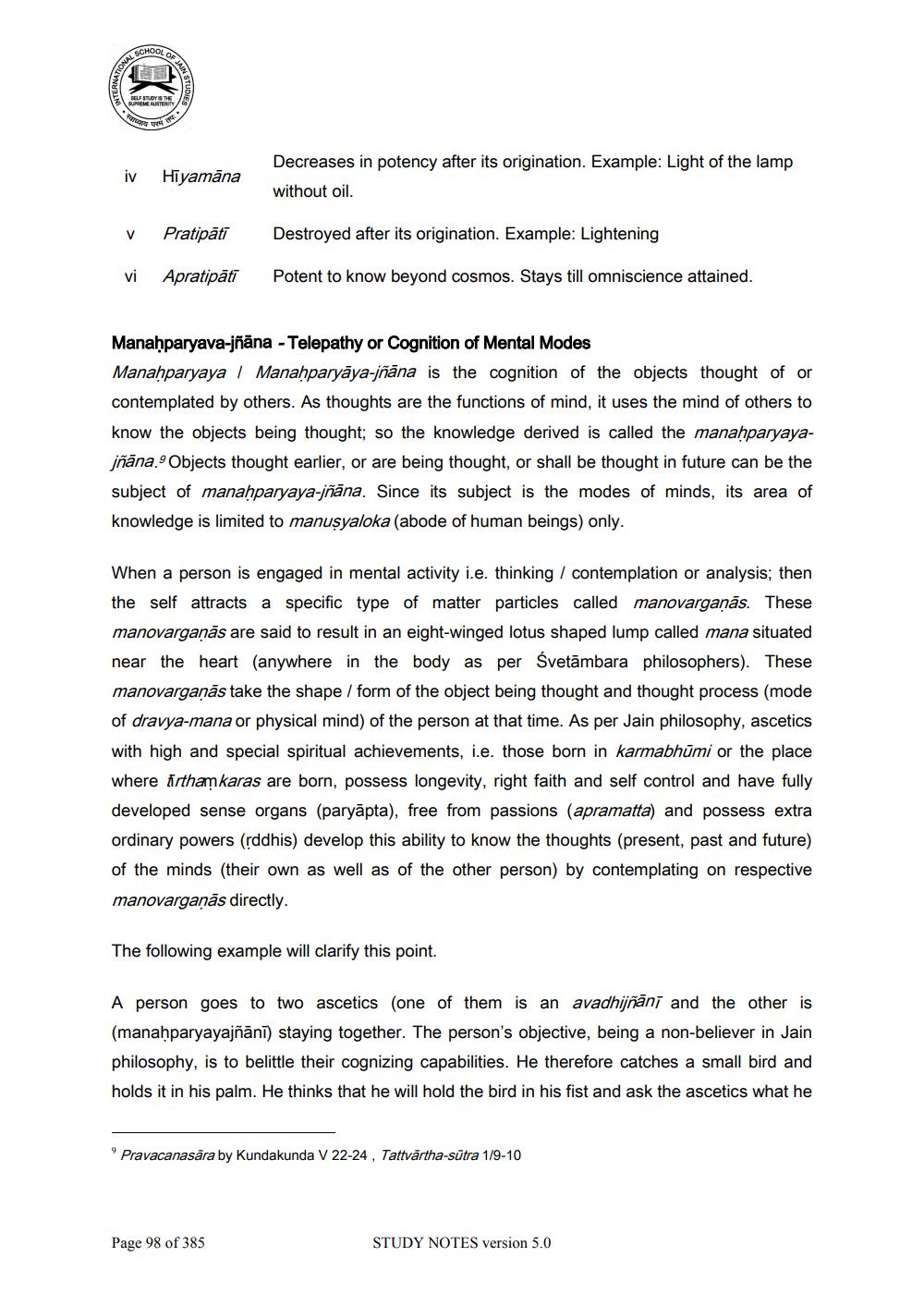________________
iv
Hiyamāna
Decreases in potency after its origination. Example: Light of the lamp without oil.
V
Pratipāti
Destroyed after its origination. Example: Lightening
vi
Apratipāti
Potent to know beyond cosmos. Stays till omniscience attained.
Manahparyava-jñāna - Telepathy or Cognition of Mental Modes Manahparyaya / Manahparyāya-jñāna is the cognition of the objects thought of or contemplated by others. As thoughts are the functions of mind, it uses the mind of others to know the objects being thought; so the knowledge derived is called the manahparyayajñāna.Objects thought earlier, or are being thought, or shall be thought in future can be the subject of manahparyaya-jñāna. Since its subject is the modes of minds, its area of knowledge is limited to manusyaloka (abode of human beings) only.
When a person is engaged in mental activity i.e. thinking / contemplation or analysis; then the self attracts a specific type of matter particles called manovargaņās. These manovargaņās are said to result in an eight-winged lotus shaped lump called mana situated near the heart (anywhere in the body as per Śvetāmbara philosophers). These manovargaņās take the shape / form of the object being thought and thought process (mode of dravya-mana or physical mind) of the person at that time. As per Jain philosophy, ascetics with high and special spiritual achievements, i.e. those born in karmabhūmi or the place where firthamkaras are born, possess longevity, right faith and self control and have fully developed sense organs (paryāpta), free from passions (apramatta) and possess extra ordinary powers (rddhis) develop this ability to know the thoughts (present, past and future) of the minds (their own as well as of the other person) by contemplating on respective manovarganās directly.
The following example will clarify this point.
A person goes to two ascetics (one of them is an avadhijñānī and the other is (manaḥparyayajñānī) staying together. The person's objective, being a non-believer in Jain philosophy, is to belittle their cognizing capabilities. He therefore catches a small bird and holds it in his palm. He thinks that he will hold the bird in his fist and ask the ascetics what he
Pravacanasāra by Kundakunda V 22-24 , Tattvārtha-sūtra 1/9-10
Page 98 of 385
STUDY NOTES version 5.0




